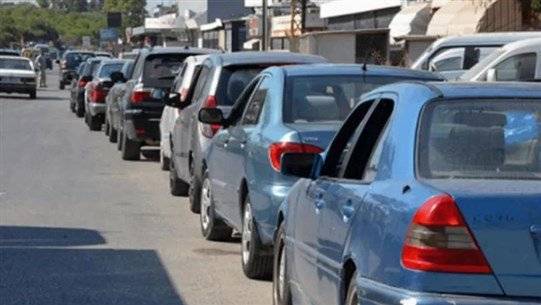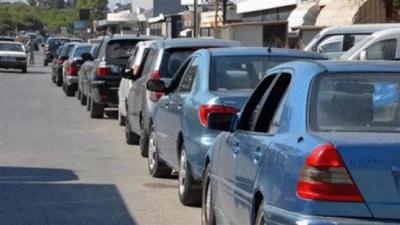Gasoline lines have not disappeared from front of the stations in Nabatieh despite the issuance of the new pricing; on the contrary, they have remained, albeit at varying rates, amidst the continued closure of 80% of the stations without a logical excuse. In Nabatieh, gasoline is distributed drop by drop, as the majority of station owners are crisis merchants, all waiting for the dollarized gasoline, seeking to ensure exorbitant profits, sometimes through deliberate closures under the pretext of disagreements over pricing despite having stock, and sometimes through a coordinated closure among most stations as a form of pressure to lift subsidies and completely free gasoline prices from the grip of the Central Bank Governor. Ultimately, the gasoline crisis continues in Nabatieh and will recur periodically until the subsidies are lifted and the price is set at 20 dollars, as confirmed by monitoring sources.
It seems that all support has been lifted from commodities in Lebanon, while the state's support for citizens is the only thing "missing." The support card has returned to the forefront amid discussions about lifting the customs dollar, which means tightening the economic noose on citizens who can barely breathe. Questions have started to arise about when the support cards designated for the poor from the Ministry of Social Affairs will be released and why they have been delayed, especially as the wealthy have received them in a way that provokes the poor; the card is for "some people with fat and some with oil," with the supported being lucky and the poor being abandoned, while the card has vanished.
No one denies the favoritism that affects this file, and that most support cards have gone to a specific political faction, particularly to the affluent among them, as a form of electoral favor in addition to the rising smell of corruption surrounding this file. How is it conceivable that someone who owns a villa gets the card while someone living in a rental is denied? Who put that mechanism in place and for whose benefit? What is the role of the Ministry of Social Affairs in this?
It seems that the poor are destined for "poverty and frustration," forced upon them are all crises, and they are forbidden from obtaining a “safety card” without logical justification. Dozens, if not hundreds, of families are still waiting for employees from the Ministry of Social Affairs to inspect their homes, months have passed since the card was launched, and now the customs dollar has been approved and subsidies lifted while the card remains outside the poor's reach and in the hands of favoritism—why?
Khadija has been waiting for months for a decision to accept her into the list of the privileged with the social support card; however, her wait has been in vain. As she puts it, “the card is for the supported only.” Moreover, she says the moods of those who accompanied social affairs employees to the homes played a role in depriving the poor of their last chance for support before it is too late. She confirms that a delegation from the Ministry of Social Affairs visited her home and left, as she thought she would receive support to buy medicines, but “it seems the card is for the supported and I am not supported.”
A year has passed since the support card came into effect, with more than 60% of the residents of Nabatieh living below the poverty line, a vast segment whose salaries do not exceed two million lira, which is just the cost of a utility bill, including a large part of public sector employees. None of this has helped their situation. “You are supported, the card will reach you; if you are not supported, wait for relief,” is the current narrative, and it’s no surprise if the cards go only to the wealthy. The poor bear the burden, as Abu Mohammed says while hoping for good from the card; his affluent neighbor received a support card for himself and his children and is now lucky to receive one hundred and fifty dollars. He wonders, “Why isn’t the card meant for the poor? Where are the poor in this? A Syrian receives financial aid of up to one million lira for each child, and we are deprived. Isn’t this unfair?”
Monitoring sources confirm that there is selectivity in the distribution of the cards, that the election period has turned into electoral bribery, and today it targets the well-off, those who own luxury cars and villas. There is no denying that popular resentment has begun to surface, as everyone demands their right to the card, but it is regrettable that certain names are chosen as a form of bribery even at the expense of the poor.
Thus, the support card is for the supported only, and the Ministry of Social Affairs needs to reconsider the distribution mechanism.




